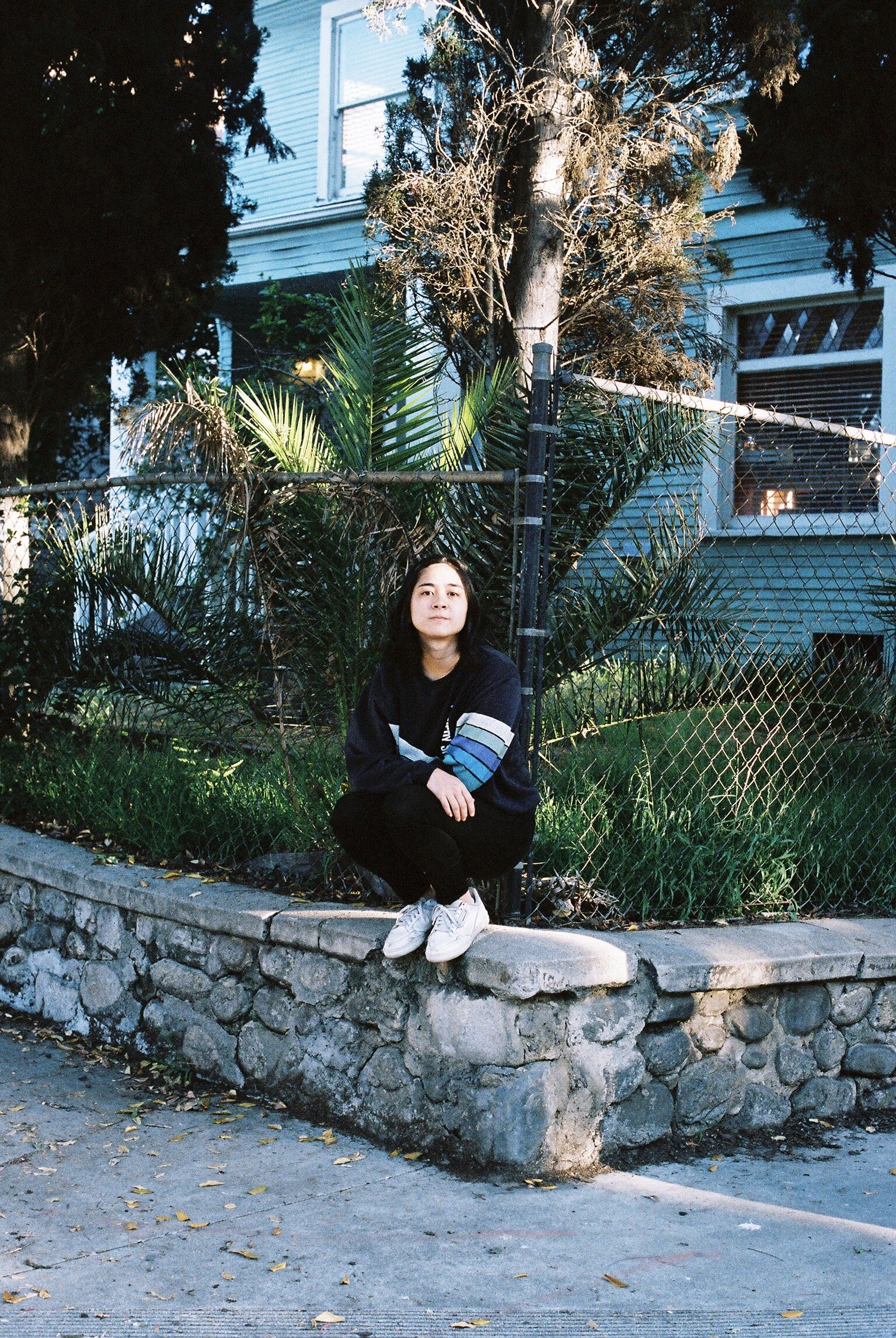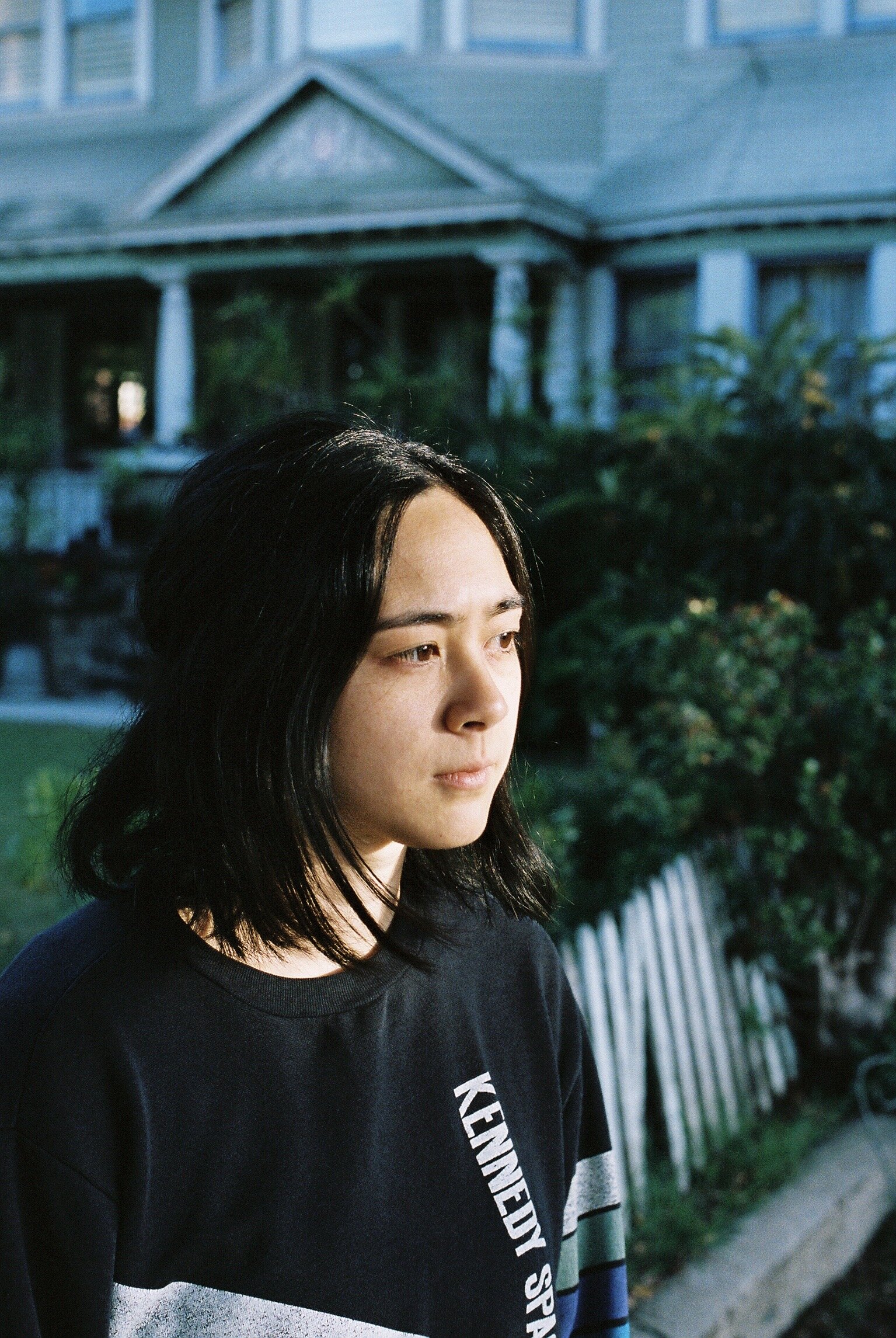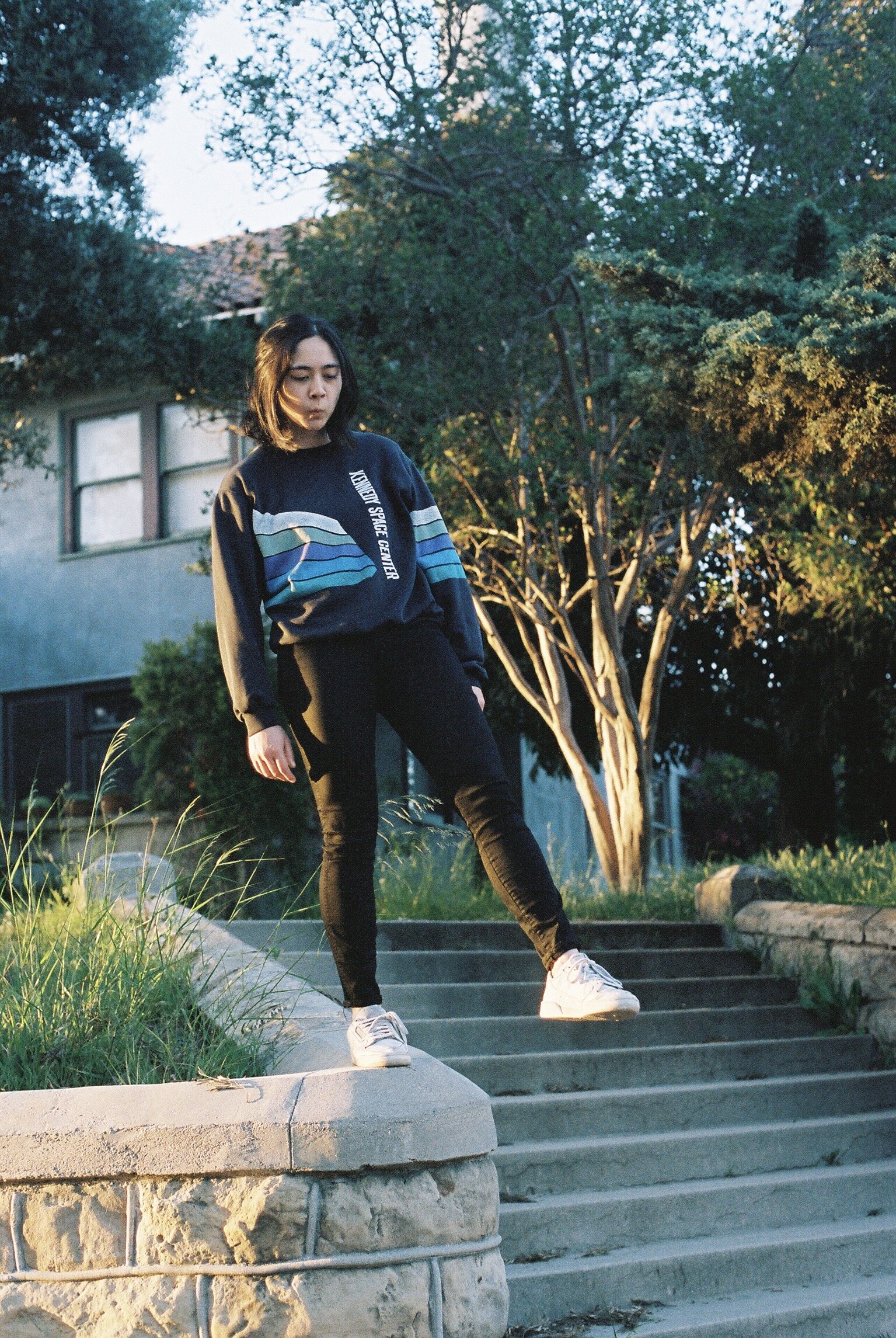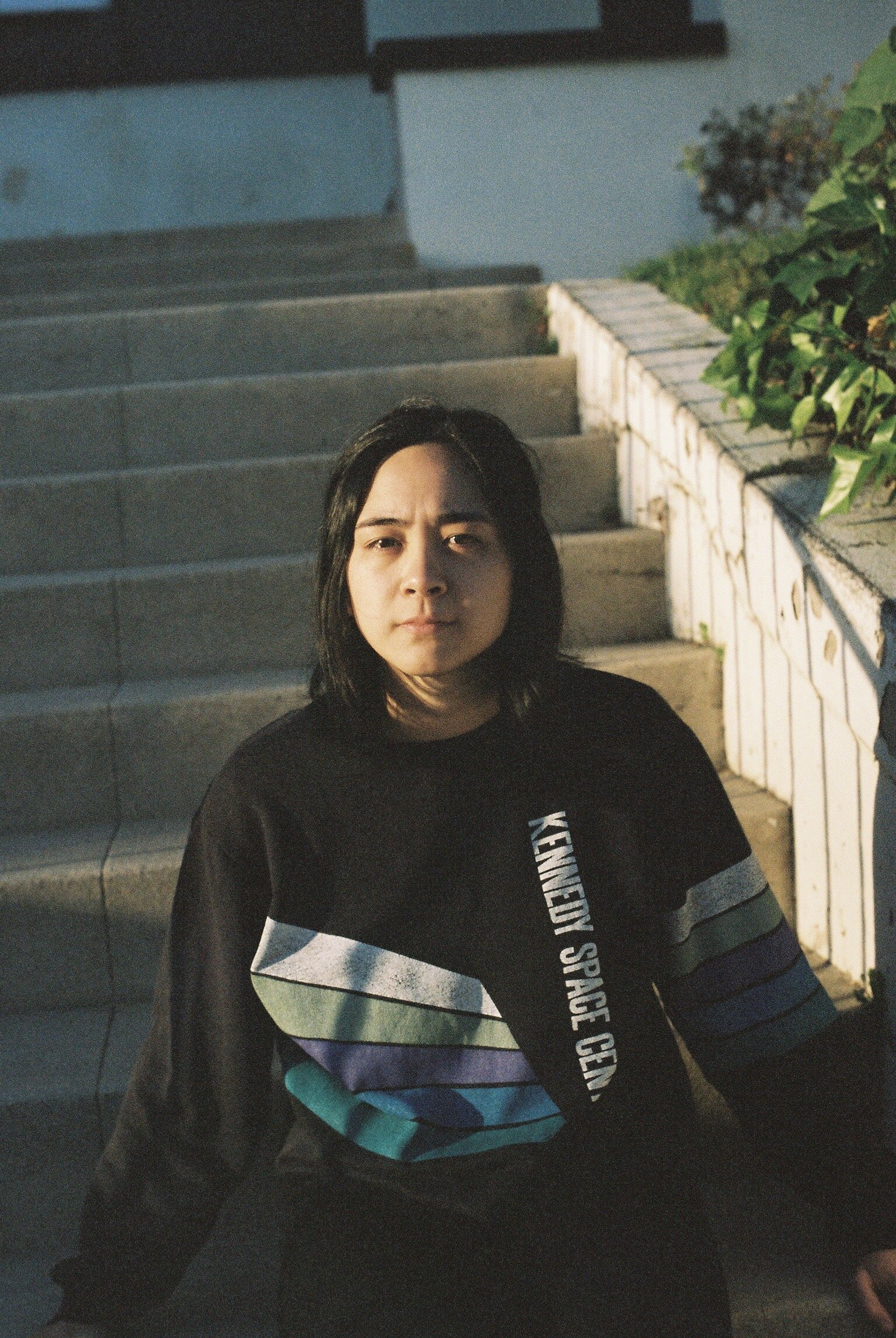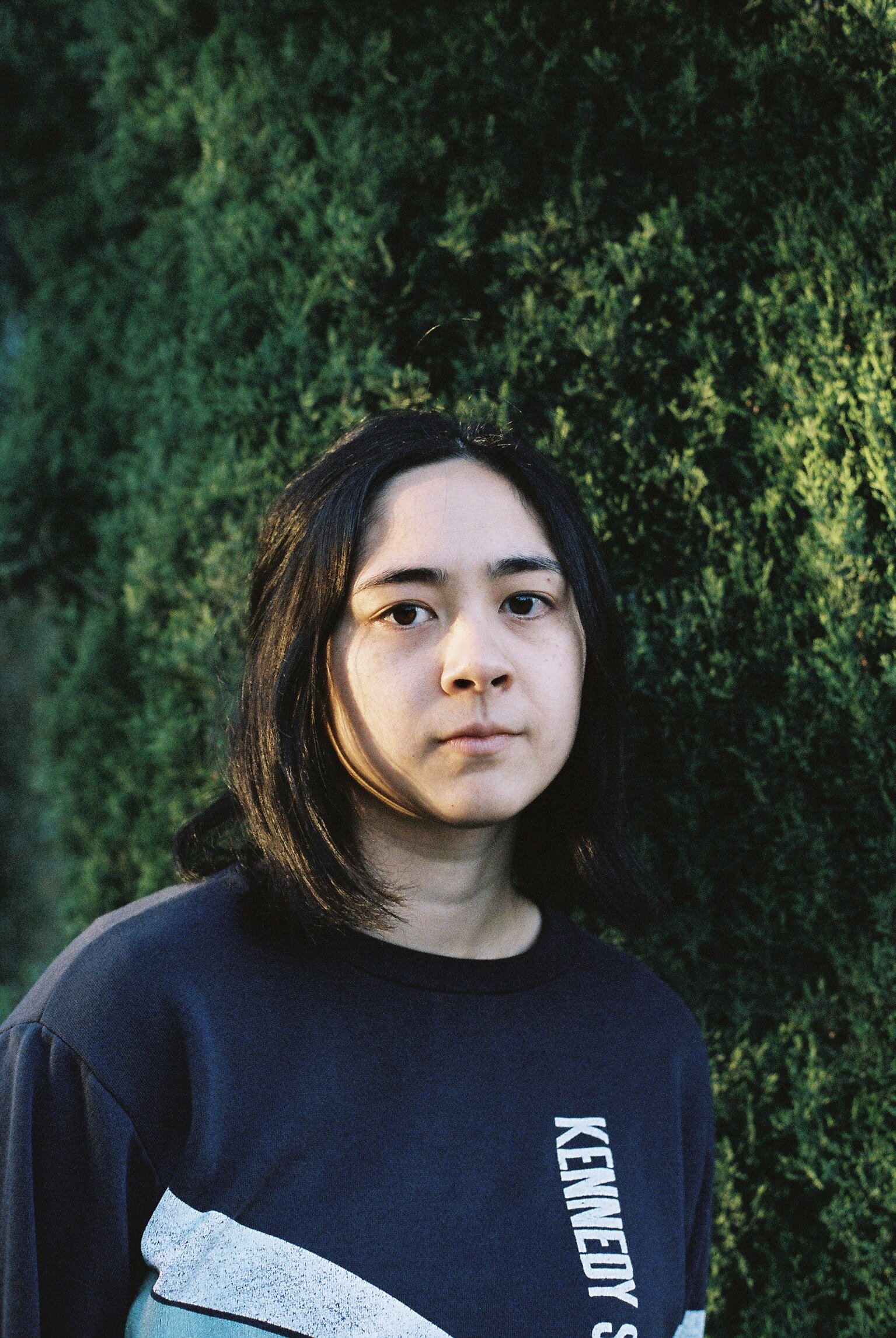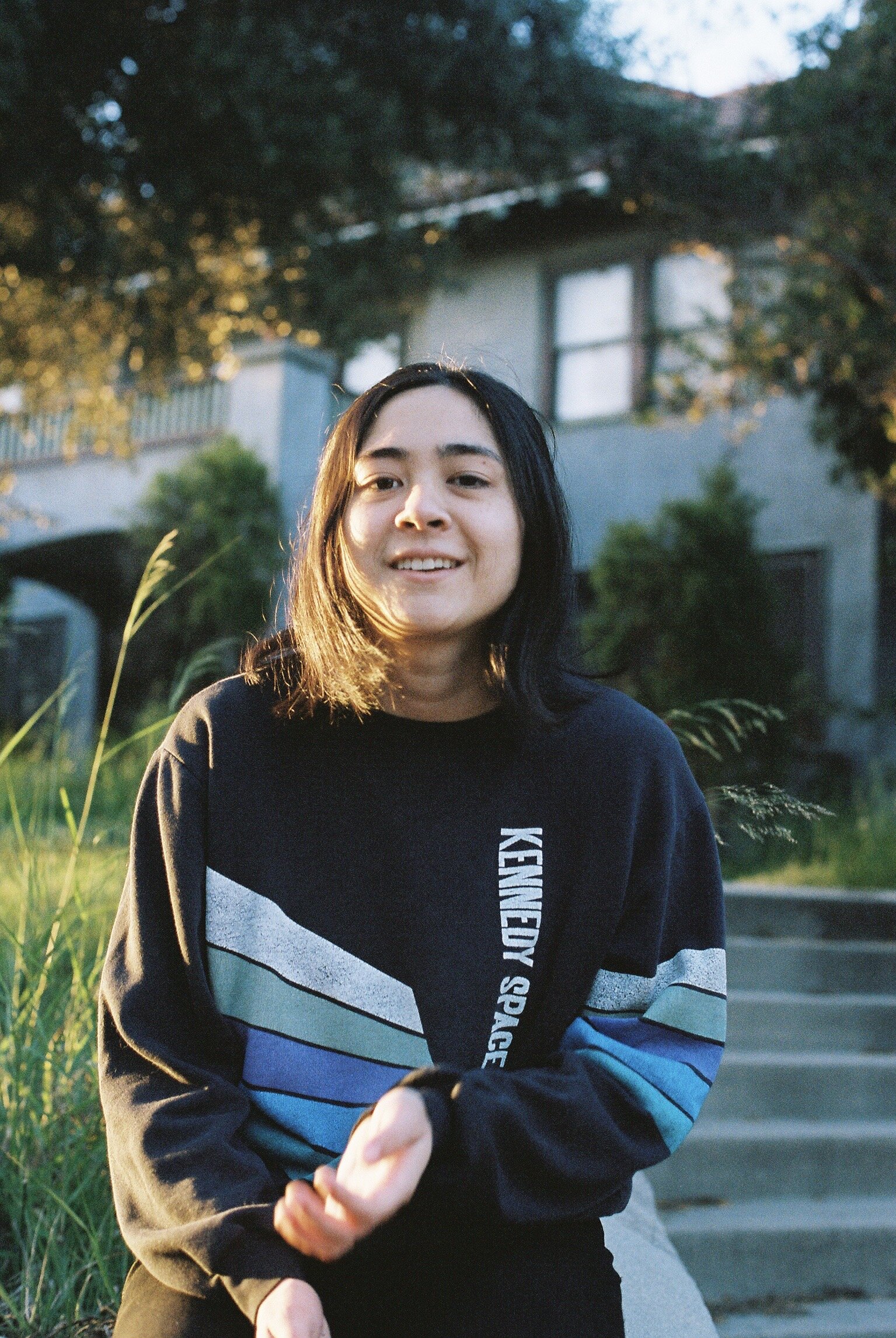Mini Trees
written by Alex free
Mini Trees Reflects on Isolation and Surface-tension
with EP Slip Away
“I still go back and forth in how I feel about it— I think I was more lyrically vulnerable with this release than any before, which is still difficult for me to do.” I’m on the phone with Lexi Vega, known for her work with ongoing identity-project Mini Trees, the name that Lexi writes and records under (with producer Jon Joseph) as a safe outlet to explore and share her deeper emotions. We’re talking about her upcoming release, Slip Away, a disarming EP about the difference between the lives we lead outwardly, for other people, and the life we lead in our own mind.
Slip Away was an album made in isolation; not the isolation we’re all becoming used to of quarantine, of staying inside, of not seeing our friends except on a screen. But the isolation of feeling alone while with people, feeling like you can’t or don’t know how to say what you’re thinking without an upbeat facade and the appearance of things being okay.
“I’m way more comfortable sharing things in song form than in real life,” she says, speaking carefully, deliberately, without reaching for words. “There are things I like to write about that are things I’ve never really talked with certain people about. I think it’s easier to process that way, and maybe there’s some safety in it, because music is open to interpretation. It’s a relieving way to express myself without having to be face-to-face honest with certain people. So in a weird way I feel like I had more confidence in that sense, a little more boldness with what I was willing to sing about.”
The EP forwards itself with that idea of duality without naming the concept explicitly. Upfront it’s full of feel-good chords and the repetition of riffs that are pop-sensitive, lightweight, that come back and vary just as often as you could wish. It’s Lexi’s voice, the slight melancholic edge to her vocal style, that clues us into the idea of difference. The rhythm section says ‘dance’ while the lyrics say ‘cry,’ a contrast between surface impression and substance that Lexi says she’s a fan of in music.
“Without really paying much attention, like on the surface, things can seem perfectly fine, and everything’s going great, but when you take a second to pay closer attention there’s more going on,” she says, reflecting. “That’s certainly something I’ve experienced, I think most people have.”
It’s a split that we confront constantly in our daily lives: our desires and vision of ourselves against small parts of our reality that contest that, our public face against our private inner dialogue, even the face that we present in our intimate relationships versus what we honestly feel inside. Preserving the image that everything is okay even when we’re not okay.
“I’m sure not everything I write will be that way, I’m sure different seasons will present different types of songwriting. But this past year I think what characterized my experience was that sort of idea— taking a closer look and realizing things are not actually as they seem. There’s more going on, stuff I needed to deal with,” Lexi says. “In some ways it was intentional and in other ways I think it was just organic songwriting that came out of that time.”
Each of the songs realize this at different depths and nuance, recorded sporadically over the course of months beginning last July. The plucky signature of title track Slip Away contains the memory of a conversation (possibly multiple), about the need to break habits, to stop reinforcing cycles and change damaging behaviors. But despite the good intentions and support of the people around you, it ends with the idea that you are exactly who you cannot escape: a slippery, up and down cycle of optimism and pessimism, the past with its negative thought-patterns and behaviors coming up uncontrollably, out of the blue.
It’s chaos that hits close to home, though Slip Away is still fundamentally a pop song— with supreme synth moments, easy-going, blithely understated harmonies, a strong and steady rhythmic pulse. Lexi’s voice emerges with a cool sense of urgency, an unexpected plea in bouncy, upbeat packaging.
This is against the more disjointed rhythmic movement of Garden, which moves at an accelerating pace that could be frustrating without the melodic strains of Lexi’s voice softening the effect. Sustained single-note harmonies (also sung by Lexi) create an almost synthesized vocal effect, overlaid throughout and emphasizing the slowed weight of the chorus:
what i wouldn’t do
separate the waters pull me in two
abandon the garden to get through to you
&find out you’re someone i can’t afford to lose
It’s a complex, shapely, developing track, it’s particular blow the soft impact of being in the moment when you feel like you’re not good enough for love.
“So [Garden] was the first one I wrote. Yeah, that’s an interesting one. There’s not a lot, but there’s a handful of biblical imagery in that one. ..that’s my background. I almost wonder if it’s a little.. not blasphemous, but on that edge. There have been people very close to me in my life who’ve struggled a lot with mental health issues, and this song is about wishing I could do something to make it all go away for them. I see what they’re going through and I wish I could make it stop for them. What I say in the chorus is ‘you’re someone I can’t afford to lose.’ It’s sort-of recognizing that I’m also incapable of being able to do that for people.
“But yeah there’s some biblical imagery of separating the waters, and in a weird way using imagery that god would use for himself. Drawing from those themes and images that I grew up knowing. The chorus is saying like, ‘I would do anything to make this go away for you,’ so I would separate waters, or I would be pulled in two, or I would abandon the garden. ‘I would leave safety’ is the metaphor, I guess.”
It’s a world of privacy, of intimacy, of the closed doors of depression. And rendered beautifully, a cohesive record of a time and feeling. Surrounding visuals unite the EP with aesthetic strength: line-drawings of a single hand reaching (Alice Henry, Tom Goulet, additional animation Eddie Ramos), two hands holding onto each other at the two wrists, water lines; a beautiful music video (by John Rizkallah and D.C.R. Pollock) that’s a visual record of what it’s like to feel alone while in company.
“Definitely had a lot of feelings of just being lonely, even though there’s good people in my life— I have good relationships, great friends, great family. But I was feeling like nothing was filling that void, and finding ways to distract myself from that. A lot of staying out late, going to shows. Looking for that sort of fulfillment in those kinds of things. “It always provided some temporary relief because it was fun and distracting, but always with the sense of something’s not right, something’s missing. Since then I’ve been going consistently to therapy and working through a lot of things and that’s been super healing, but also has just made me a lot more honest with myself. And that’s not always easy to do.”
But Slip Away is not so easily understood as sadness hiding behind a pretty face. The EP acknowledges that nothing is so clearly-cut as would make understanding simple, or navigating life easy. The happy cadence and melodic/harmonic structure of the songs are not surface beauty only, and moments on the record strongly endorse a message of: ‘happiness felt just as much as sadness.’
Like the breakthrough moment on April, a cyclical, hypnotic song that quickly establishes a spiraling motion. It winds, and slows, and winds again, all for one chimney moment full of pause before the songs billows outward, flushed, into a reiterated chorus. It’s like leaning out the car window with golden hour rushing past, your friend in the driver’s seat; all good things, someone you trust at hand, a moment to engulf all moments.
And closing track Honestly is a song about being complete, the fight for it, and the longing for it. It’s lyrics detail the separation between you and yourself; it’s about the discrepancy between our desires and our reality, the fantasy lives we lead in our heads and play out, and things in ourselves we won’t let ourselves fully look at. It’s not one or the other but it’s both.
It’s a spiraling that, ultimately, never finishes. The outro continues the looping pattern established in April in different melodic form, fading off with no note of finality.
We’re left with questions instead of answers, maybe a place of rest and solace before the next cycle (of sadness, insecurity, doubts) comes up again in an overwhelming way, asking us to view our lives differently and as less than they actually are. But Slip Away is an EP full of feeling— not outside of moments of bleakness and emptiness, but in the face of them.
Good for an endless loop, or for a single deep listen on the back balcony next to the orange tree, singing along and not thinking of anything else for one 17-minute slice of the afternoon.
Stream Slip Away below + keep up with Mini Trees on Instagram @minitreesband.


